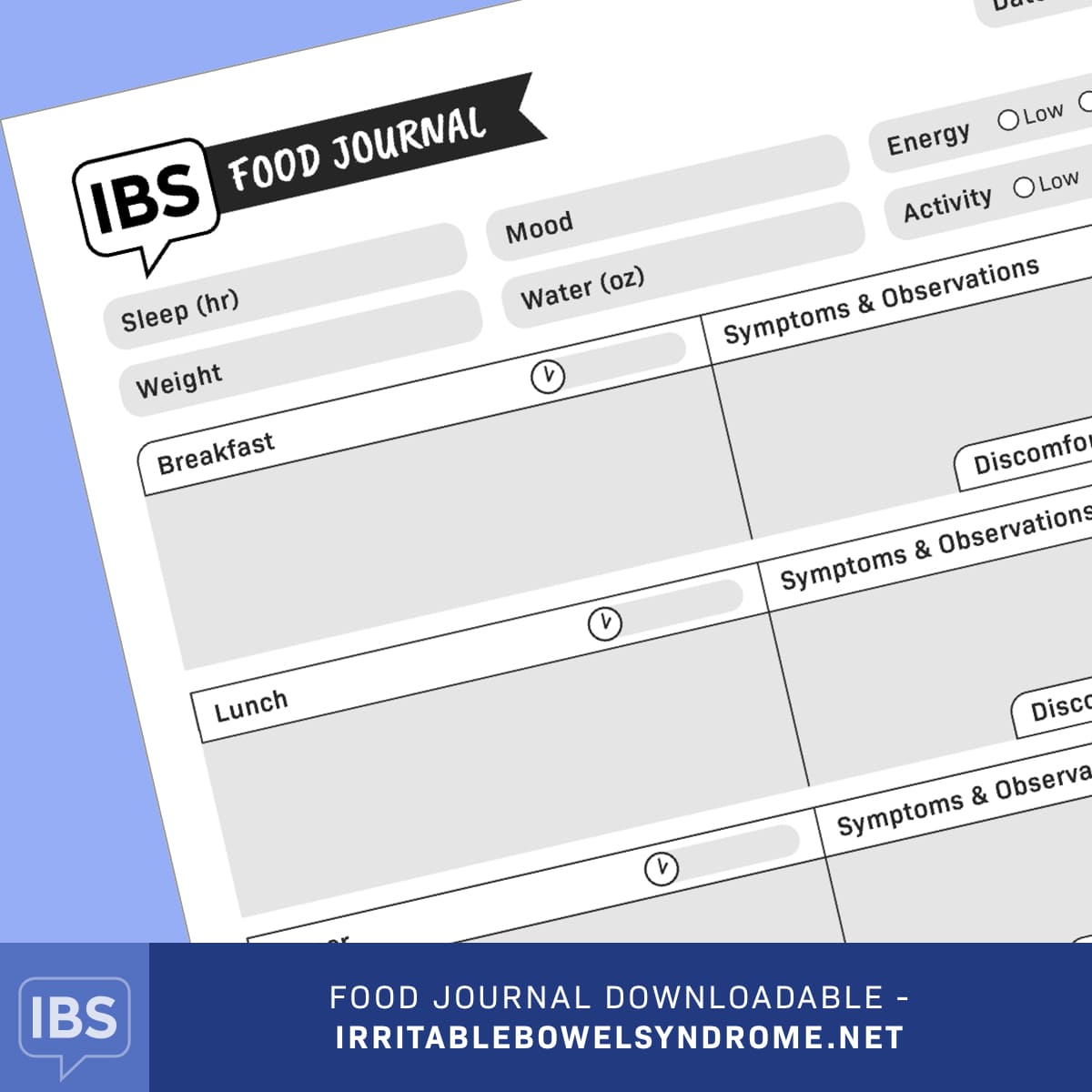Keeping a Symptom Diary
Reviewed by: HU Medical Review Board | Last reviewed: May 2024 | Last updated: May 2024
There is no specific test for irritable bowel syndrome (IBS). It is an illness based on symptoms. The goal of treatment is to manage those symptoms.1
Keeping a written record of your symptoms can help you better understand your illness. This record is sometimes called a symptom diary. A symptom diary should include information about your pain level and bowel movements.2,3
The diary can also keep track of other important information. You can track how different factors affect your IBS. These factors may include:2
- Diet
- Exercise
- Stress level
- Medicines and supplements you take
- Daily activities
A symptom diary can help you figure out what might be triggering your IBS. With data from the diary, you and your doctor can work together to figure out the best treatment options for you.1-3
A detailed diary is most effective
To get the full picture of your IBS symptoms, fill out the diary for 2 to 4 weeks. You can use a notebook, journal, or printable diary.2
There are also apps that help you track your symptoms. Some popular apps include:
- Bowelle: This app helps you track your diet, liquid intake, bowel movements, and stress level. Bowelle shows you a visual layout of your diary and allows you to share data with your doctor.4
- Mahana IBS: This app requires a prescription. It uses techniques from cognitive behavioral therapy (CBT) to relieve IBS symptoms.5
- Monash University FODMAP Diet: This app focuses on the FODMAP diet as a way to reduce IBS symptoms. The app provides recipes and a guide to eating foods low in these carbohydrates.6
What to write in your symptom diary
Here are some ideas for what to record in your symptom diary:2
Gastrointestinal symptoms
- Stool description
- Hard lumps
- Pellet-like
- Sausage-shaped
- Soft blobs
- Watery stool
- Diarrhea
- Stool passage
- Incomplete bowel movements
- Strong urge
- Straining
- Constipation
- Gas
- Bloated
- Belching or burping
- Flatulent or passing gas
- Pain
- Abdominal and lower intestinal cramping
- Pain on either side of the abdomen
- Rectal pain (sharp, dull, burning, a cramping feeling, or feeling like there is a hard object in your rectum)
- Medicines (including dosage)
- Prescriptions
- Over-the-counter drugs
- Supplements
- Herbs
Food and drinks
- Food
- Fruits and vegetables
- Meat, fish, and poultry
- Dairy products
- Bread and pasta
- Desserts
- Spices
- Condiments
- Drinks
- Drinks with or without caffeine
- Zero-sugar drinks
- Fruit juice
- Soda or seltzer
- Alcohol
Emotional state
Note whether you are feeling any of the following:
- Happy
- Sad
- Relaxed
- Depressed
- Anxious
- Tired (physically or emotionally)
Exercise
Include how long you did any of the following activities:
- Walking
- Running
- Biking
- Swimming
- Other aerobic exercise
The diary should be as detailed as possible. Since diet is a major factor in IBS, make sure to write down exactly what you ate. Instead of simply saying you had chicken, for example, write down whether it was baked, grilled, or fried. And don't forget to include drinks and snacks. This could help you figure out dietary triggers for your IBS.1-3
Write down what you were doing that day, too. Stress can worsen IBS symptoms, so make note of whether you had a rough day. You can't eliminate all the stress in your life. But you may be able to find techniques to deal with those daily challenges. Both CBT and meditation have been proven to help with IBS symptoms.2,3,7,8
Looking for patterns
After you keep a symptom diary for 2 to 4 weeks, begin to look for patterns. Did certain foods or drinks make your symptoms worse? Did your symptoms flare when you were anxious or stressed out?2,3
Pay particular attention to the bad days. What factors do they have in common? You can discuss what you have discovered at your next doctor's appointment. Together you can decide what changes might be made to your treatment plan.2,3
